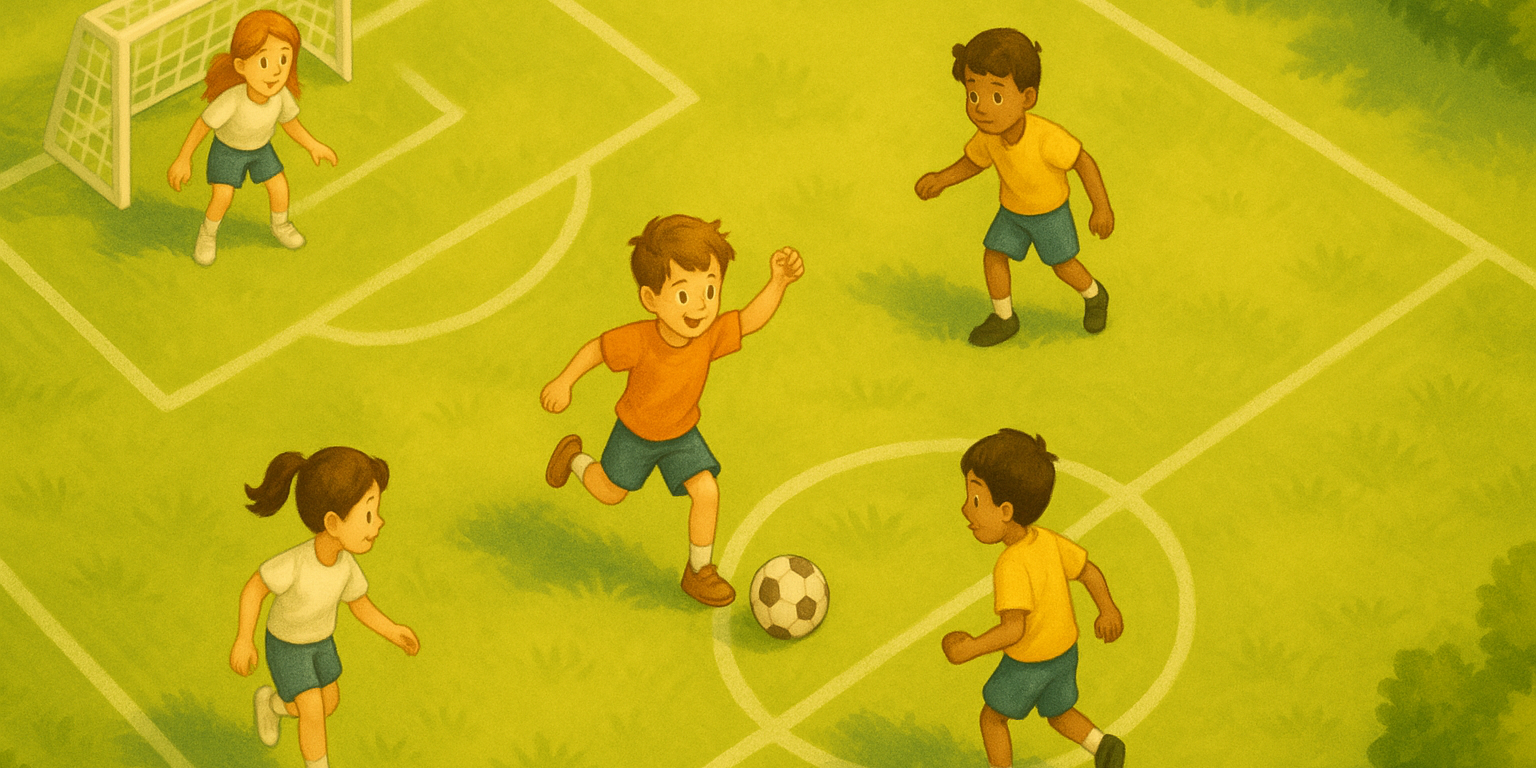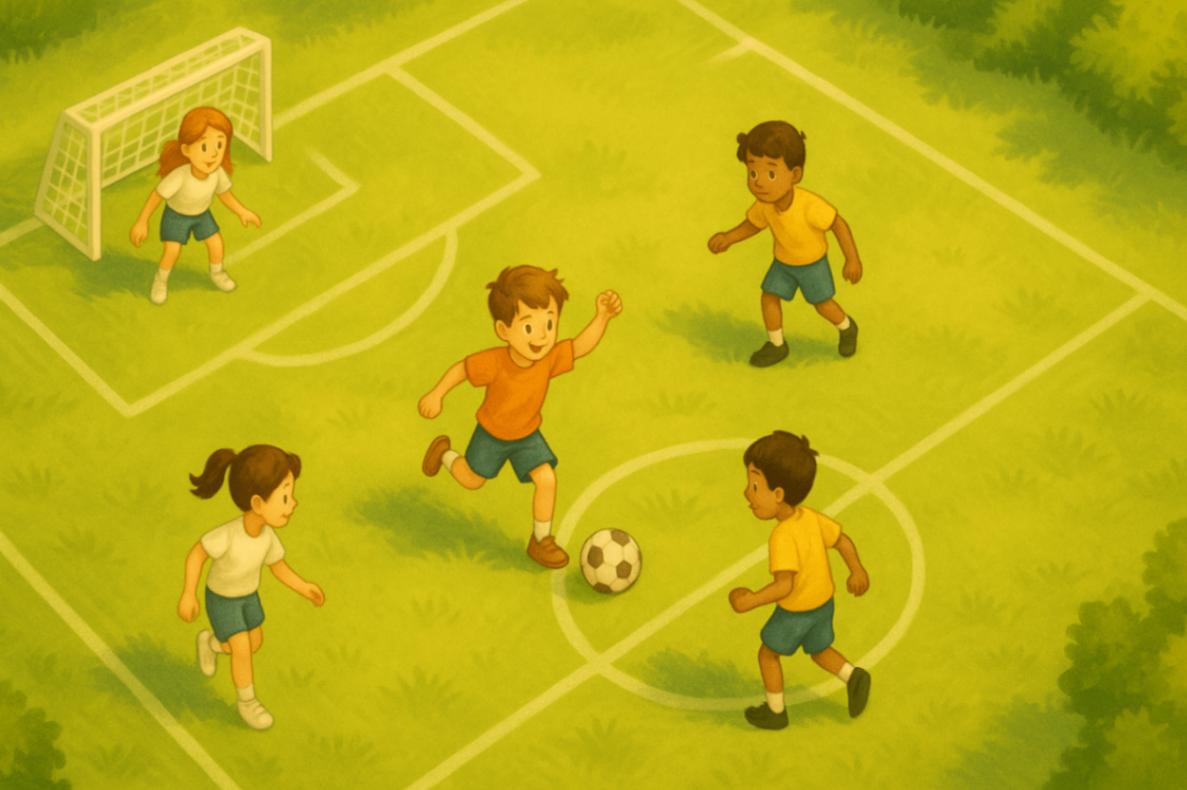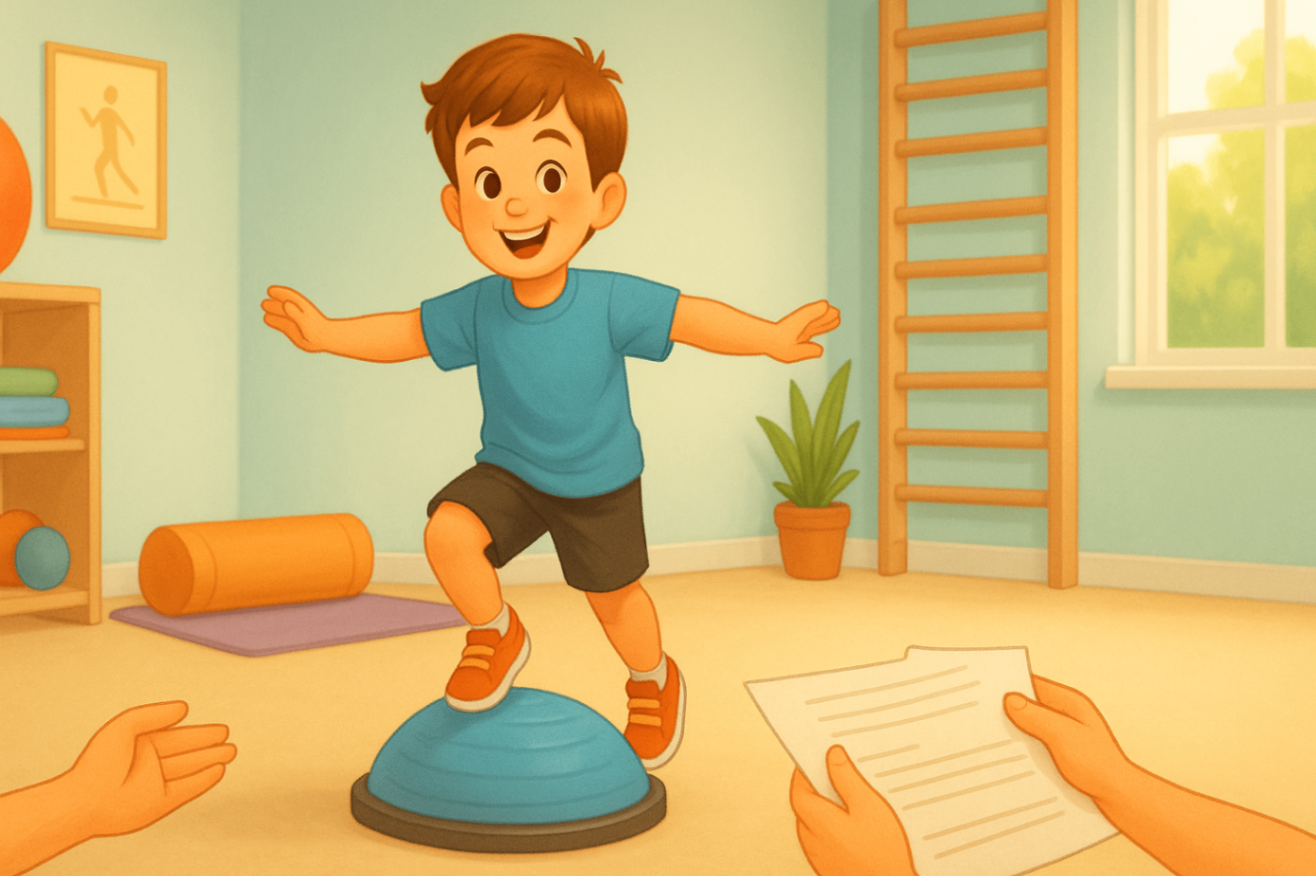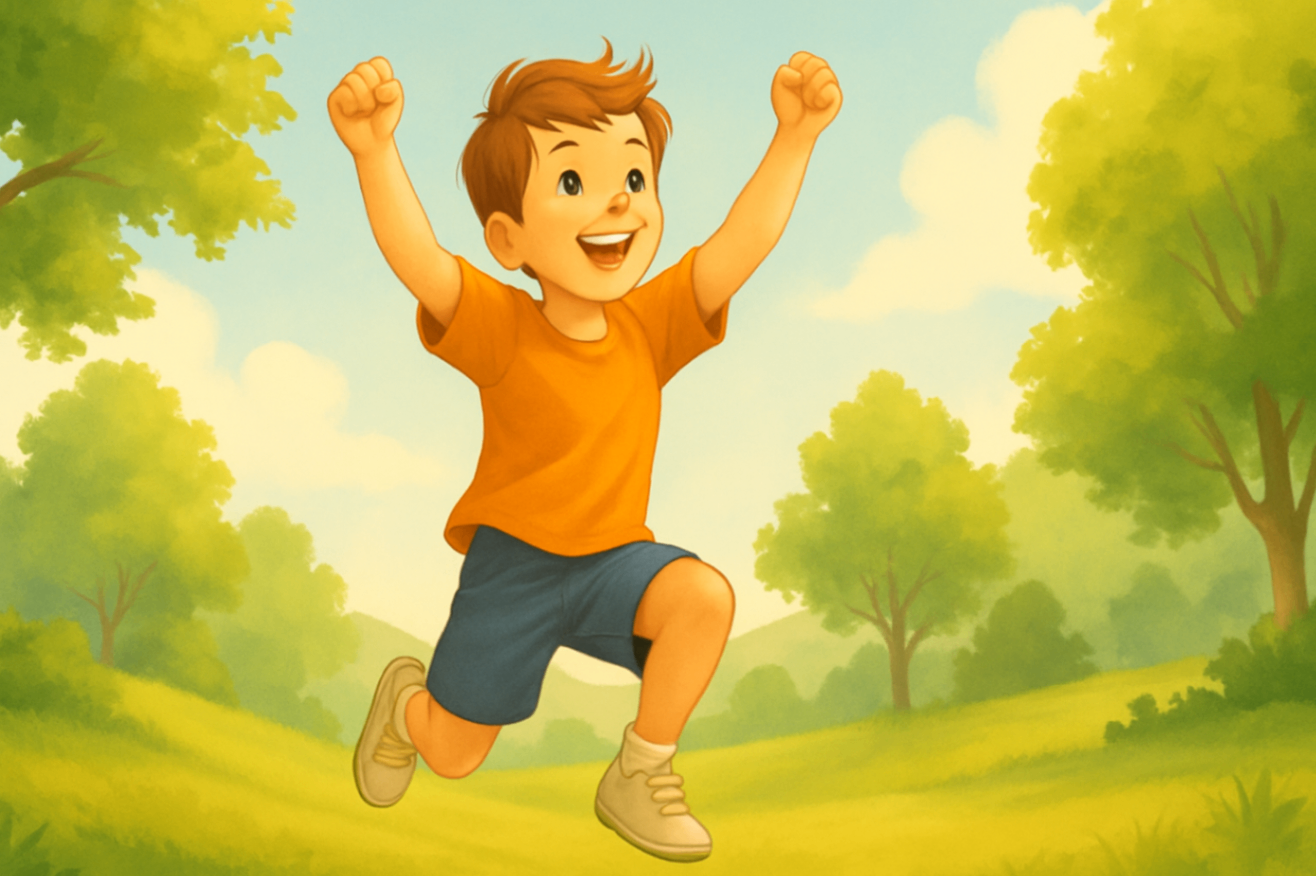
children’s exercise physiology services in liverpool
15 July, 2025
Supporting Your Child’s Growth Through Movement
Children thrive when movement is a regular part of life. Whether it’s running, climbing, swimming, or playing team sports, physical activity strengthens both body and mind. It also builds the fundamental motor skills that support lifelong health and independence.
Through structured, child-focused programs, children’s exercise physiology helps kids improve coordination, strength, flexibility, and resilience. It’s not just about fitness—it’s about building habits for life.
Key Highlights
-
Children’s exercise physiology helps build core strength, fitness, and confidence.
-
Programs focus on movement, cardiorespiratory health, and long-term wellbeing.
-
Kids respond to exercise differently than adults—programs are adapted to their needs.
-
Liverpool families can access NDIS-funded children’s exercise physiology services.
-
Early support can shape healthier habits and better developmental outcomes.
What Is Exercise Physiology for Kids?

Exercise physiology research for children looks at how different physical activities change the way their bodies work and help with their health. It studies things like maximal oxygen uptake, energy consumption, and cardiorespiratory fitness at a higher intensity, including the impacts of coarctation repair, considering factors like chronic airway colonization and the diversity of study designs to see how the exercise capacity of CF patients and kids' bodies react to exercise performance.
Children’s exercise physiologists use safe and engaging methods to:
-
Improve cardiorespiratory fitness
-
Boost peak oxygen uptake
-
Support energy levels, endurance, and balance
They assess how a child’s body reacts to exercise using science-based tools, then tailor programs to their individual needs. It’s ideal for young athletes, children with developmental delays, or any child who needs extra support with movement.
Key Principles of Exercise Physiology for Kids
Exercise physiology for kids is about keeping things balanced and working within their limits. It looks at how much energy they use and makes sure they do not do too much or too little. Kids need the right level of physical activity that fits their needs. The focus is different from adults, because children have growing bodies. This means their activities should match where they are in their growth and be right for their body mass and the best body mass index for them.
Physical activity should help elementary school children build their fundamental motor skills, leading to higher scores in various physical activities. These are the basic skills that everyone needs, like balance, strength, and being able to move well. When these skills are strong at the fundamental level, children can move better, get stronger, and have more staying power. Good programs, such as the contextualized sport alphabetization model, take into account the age and level of each child. This makes sure kids grow with the activity and do not get hurt.
For a deeper dive into how goals are set and progress is tracked through clinical methods, read Understanding Exercise Physiology: Goals and Practices to explore key techniques.
How Children Respond Differently to Exercise Than Adults
The way children respond to physical activity is not the same as adults because their bodies are still growing. For example, when kids do exercise, their heart rate goes up faster because the size of their hearts is smaller. The contractions of their hearts are quicker, but they are not as strong, and this can affect their blood pressure.
Children are not just small adults. Their muscles, lungs, and hearts are still developing, so their response to exercise is unique:
-
Their heart rates increase faster, but strokes are less forceful
-
Oxygen use is less efficient, so rest periods matter more
-
They recover more quickly after bursts of activity
-
They develop strength and explosivity gradually through repetition
That’s why children’s exercise physiology is adapted to age, body mass, and developmental stage—it’s not one-size-fits-all.
What Do Exercise Physiologists Do for Children?

Exercise physiologists have an important part in checking and helping a child’s fitness status of players, including female basketball players, across different sports. They look at many things to figure out the child’s fitness status and learn about the child’s fundamental motor competence, especially for aspiring elite athletes. This means they pay attention to things such as heart rate, flexibility, and endurance.
Exercise physiologists then create special movement programs that match with what is being studied in exercise physiology. These programs are made to help kids get into physical activity and move in a way that helps their development. They are needed for both health and fun by giving kids the right activities at the right time.
Importance of Physical Activity in Childhood
 Childhood is a key time to build habits that can last a lifetime. Regular physical activity gives many health benefits right away. It also shapes the future development of children.
Childhood is a key time to build habits that can last a lifetime. Regular physical activity gives many health benefits right away. It also shapes the future development of children.
When healthy children move and play, it helps make their heart and lungs strong, builds motor competence, and supports their growth. Also, studies had shown that kids who stay active are more likely to carry these healthy lifestyle choices into adult life. If we encourage children to be active, they can become healthy control subjects for health checks later on.
Short-Term and Long-Term Health Benefits
Physical fitness in children brings many good things right away and later in life. Some of the benefits are:
-
Enhanced peak oxygen uptake: This helps their bodies get enough oxygen as they grow.
-
Improved cardiorespiratory fitness: This lowers their risk of getting long-term health problems.
-
High levels of physical activity (PA): This makes them stronger, helps them move better, and keeps their bodies going for longer. Participants with high levels of PA tend to exhibit better measures of fitness.
-
Overall health benefits: This brings down the chances of them having weight problems or issues from sitting too much.
In the short term, kids often feel in a better mood and have more energy after they move or do physical activity. Over time, they also learn habits that help them have a healthy lifestyle later on as adults. Physical activity, physical fitness, and good peak oxygen uptake all add to these health benefits and a better way of living.
Impact on Growth and Development
Physical activities help kids grow and develop in many ways. When children do things like jumping, including standing broad jump, or running, they build up their fundamental motor skills, which are essential for the development of foot motor response inhibition, dynamic postural control and the performance of the effects of multidirectional plyometric training on dynamic balance tests and a dynamic walking test. These skills, including change of direction, help with body coordination and also make motor competence better.
Motor competence is important because it helps control the developmental rate of explosivity, which is essential for the development of the motor competence, a crucial component of overall motor skills. When kids do more activities, it can change their body mass by burning fat and helping them build muscle. This leads to a healthier way to grow.
Regular exercise is important because it supports children in sports and also in their daily life. That is why staying active is so important for healthy development.
Is Children's Exercise Physiology Covered by the NDIS in Liverpool?
Yes—NDIS participants in Liverpool may be eligible for exercise physiology services, either through Capacity Building – Improved Health and Wellbeing or other therapy line items.
These services can help:
-
Improve daily function
-
Increase participation in school or sport
-
Reduce sedentary behaviour
-
Build confidence and social engagement
Under the National Disability Insurance Scheme (NDIS) in Liverpool, people can get exercise physiology services if they meet the requirements. These services are included as one of the therapies in the program. Exercise interventions, planned for children and given by qualified physiologists, help kids build fitness and grow motor competence.
Where Can I Access Children’s Exercise Physiology in Liverpool?
Liverpool is home to numerous facilities and programs dedicated to children’s fitness needs. Families can choose from centers tailored to various sports or activities that work within broader contexts for physical development, like structured games. daar support families across Liverpool, Casula, Moorebank, Lurnea, Prestons, Wattle Grove, and surrounding suburbs. Services may be available:
-
In-clinic (child-friendly therapy rooms)
-
At home or school (mobile services)
-
Via telehealth for convenience
Local programs and facilities in Liverpool include:
|
Facility/Program |
Features |
|---|---|
|
Youth Sports Complex |
Aerobic and strength training for young soccer players. |
|
Indoor Kids’ Gym |
Tailored programs promoting physical fitness through dynamic activities and enhancing the environment of the physical activity levels. |
|
Local Health Clinics |
Offer fundamental motor competence assessments and cardio-focused classes. |
|
Community Recreation Halls |
Activities introduced using fun methods, e.g., "context of a fishing game." |
Accessing the right support ensures your child’s fitness journey begins on the right track.
Conclusion
Children's exercise physiology is more than just fitness—it’s a gateway to better health, stronger movement, and lifelong confidence, promoting crucial childhood exercise. This is why we believe that our Frontiers Research Topic on children's exercise physiology can help drive important discussions. Whether your child needs NDIS-funded support or simply benefits from extra guidance, tailored programs can set them on a path to thrive.
If you live in Liverpool or nearby suburbs, we’re here to help you get started with the right plan and the right support. Book a consultation now.
Frequently Asked Questions
What qualifications do children’s exercise physiologists in Australia need?
In Australia, kids’ exercise physiologists need to finish a university degree in exercise physiology. They should know how to research fitness status, look at healthy subjects, and use measurement methodologies. This helps them make programs that work well.
How often should children in Liverpool engage in physical activity?
Kids should take part in physical activity every day to get health benefits. Doing things that help with fundamental motor skills and keep physical fitness high can help kids have a healthy lifestyle. This also gets them ready for a stronger future.
Can exercise physiology help children with special needs?
Yes, exercise physiology can make a big difference for children who have special needs. When you use special plans and bring children together in experimental group settings, you help support health benefits. This can also help with the future development of children. Exercise physiology meets the unique needs of each child, making sure they get the care they need.
What are the recommended physical activity levels for children according to exercise physiology guidelines?
Exercise physiology guidelines say that healthy children need at least 60 minutes of moderate to strong physical activity each day. These activities should help improve peak oxygen uptake and cardiac output through cardiopulmonary exercise testing, and are important for building good cardiorespiratory fitness.
What specific programs or facilities in Liverpool cater to children's exercise and fitness?
In Liverpool, there are many places and programs where children can be active and get exercise. The options in the area include community sports clubs. There are also after-school programs where kids join in activities. Some local gyms let young people have memberships, and they even have kids' classes. These special fitness classes help children stay healthy and feel good by keeping the activities fun and interesting for them.
.svg)

















